 Headline News
Headline News

Teen arrested for Brac smash in minster’s car
 (CNS): Update Monday 3:00pm — Police say that earlier today, Monday 17 January, a 16-year-old boy was arrested in connection with an accident Friday night, when a Mitsibushi SUV owned by the deputy premier apparently went out of control, left the roadway and overturned.The teen has been arrested on suspicion of dangerous driving, driving without a licence, driving without insurance and leaving the scene of an accident. He has been released on police bail and police enquiries are ongoing.
(CNS): Update Monday 3:00pm — Police say that earlier today, Monday 17 January, a 16-year-old boy was arrested in connection with an accident Friday night, when a Mitsibushi SUV owned by the deputy premier apparently went out of control, left the roadway and overturned.The teen has been arrested on suspicion of dangerous driving, driving without a licence, driving without insurance and leaving the scene of an accident. He has been released on police bail and police enquiries are ongoing.
The incident happened about 10:30pm on Friday, 14 January, on Lewin Brown Drive, off Major Donald Drive close to Juliana O’Connor Connolly’s home on Cayman Brac’s Bluff.

According to the RCIPS, there were four teenagers (two males and two females all aged between 14 and 17 years) in the car at the time of the incident. No other vehicles were involved. Emergency services attended the location and found that the two male occupants of the car had left the scene. The two females who were still at the location were conveyed to the Faith Hospital, one was released following treatment and the other was admitted to hospital but has since been released. The two male occupants of the car attended the hospital that night and were also released following treatment.
The SUV is the deputy premier’s personal vehicle, not the Brac VIP car.

Man hurt in 1 of 2 robberies
 (CNS): Update 3:05pm Sunday – Police say an 18-year-old man was arrested in connection with an incident at the Plum Tree grocery store on Friday evening, the first of two armed robberies on Grand Cayman that night. The suspect is currently detained in police custody while enquiries continue. A male victim is currently in hospital recovering from injuries received during the robbery. Police reported that two men armed with machetes entered the convenience store in Northward just after 8:30pm, assaulted a male member of staff and grabbed the cash register before making their escape. Meanwhile, some two hours later two members of staff at Tim Buc Tuu restaurant were held up at gunpoint as it was closing for the night by two robbers who made off with both tips and takings. (Photos Dennie Warren Jr)
(CNS): Update 3:05pm Sunday – Police say an 18-year-old man was arrested in connection with an incident at the Plum Tree grocery store on Friday evening, the first of two armed robberies on Grand Cayman that night. The suspect is currently detained in police custody while enquiries continue. A male victim is currently in hospital recovering from injuries received during the robbery. Police reported that two men armed with machetes entered the convenience store in Northward just after 8:30pm, assaulted a male member of staff and grabbed the cash register before making their escape. Meanwhile, some two hours later two members of staff at Tim Buc Tuu restaurant were held up at gunpoint as it was closing for the night by two robbers who made off with both tips and takings. (Photos Dennie Warren Jr)
At the Plum Tree store on Northward Road, not far from the country’s prison, the member of staff sustained head and hand injuries in the incident. The injuries, which are believed to have been caused by a machete, are not thought to be life threatening. He was taken by ambulance to the Cayman Islands Hospital in George Town, where he remains this morning (Saturday) and is currently in a stable condition.
Detective Constable Manley Berry is appealing for witnesses to the incident to contact Bodden Town CID or the confidential Crime Stoppers number 800-8477 (TIPS).
 In West Bay an employee of the Tim Buc Tuu on Town Hall Road, West Bay, was sitting on the patio at the front of the premises while his co-worker was finishing up inside. He was confronted by two masked men, one of whom had what appeared to be a gun. He forced the staff back inside the premises, where they threatened the female worker before stealing both the night’s takings and the contents of the tip jar. The suspects were last seen running off to the rear of the restaurant but other witnesses say they may have escaped in a green car.
In West Bay an employee of the Tim Buc Tuu on Town Hall Road, West Bay, was sitting on the patio at the front of the premises while his co-worker was finishing up inside. He was confronted by two masked men, one of whom had what appeared to be a gun. He forced the staff back inside the premises, where they threatened the female worker before stealing both the night’s takings and the contents of the tip jar. The suspects were last seen running off to the rear of the restaurant but other witnesses say they may have escaped in a green car.
No one was injured and no shots were fired during the incident but staff were shaken by the ordeal, although they found time to commend the very quick response of the West Bay officers, who they said were on the scene within ten minutes of the robbery.
The suspects are both described as being Caymanian, around 5’4”in height, light complexion, wearing black long sleeved shirts, black pants, white tee shirts over their faces and black gloves. One male was of stocky build and approximately thirty years of age. The second male was described as being slim and in his mid-twenties.
Detective Constable Nathan Turner of West Bay CID is investigating the incident and would be keen to hear from anyone who was in the area at the relevant time last night and saw the incident take place or the suspects fleeing the scene.
Anyone with information on either crime can call West Bay CID on 949-3999 or the confidential Crime Stoppers number 800- 8477 (TIPS).

Home appliances to talk to owners
 (AFP): Mobile phones aren’t the only things getting smart. Home appliances are too. On display at the Consumer Electronics Show (CES) along with the latest smartphones and touchscreen tablet computers are ovens, dishwashers, washing machines, dryers, refrigerators and other products for the "connected" home. South Korea’s LG Electronics line of "Thinq" household appliances are connected to a home Wi-Fi network and can be controlled by a smartphone or a computer. LG refrigerators with touchscreen LCD displays let users keep tabs on where food items have been placed in the machine and when they expire."You can use a drag and drop system with icons or voice commands," said Patrick Steinkuhl, product insight manager
(AFP): Mobile phones aren’t the only things getting smart. Home appliances are too. On display at the Consumer Electronics Show (CES) along with the latest smartphones and touchscreen tablet computers are ovens, dishwashers, washing machines, dryers, refrigerators and other products for the "connected" home. South Korea’s LG Electronics line of "Thinq" household appliances are connected to a home Wi-Fi network and can be controlled by a smartphone or a computer. LG refrigerators with touchscreen LCD displays let users keep tabs on where food items have been placed in the machine and when they expire."You can use a drag and drop system with icons or voice commands," said Patrick Steinkuhl, product insight manager
"You can say things like ‘Ground beef top shelf.’ It has default expiration dates built in but if you want to change those you can," he said. "You’re in complete control."An owner of the LG refrigerator can access its contents while shopping via a smartphone and figure out, for example, whether they need to pick up another gallon of milk or orange juice.
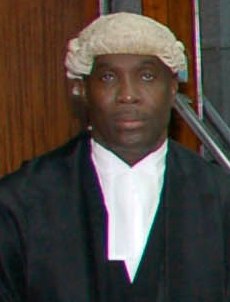
Legal preps for human rights writs
 (CNS): The Cayman Islands top lawyer has said the government’s legal department is expecting numerous applications to the courts alleging breaches of human rights once the country’s bill of rights comes into effect in November next year. Moving the motion for the opening on Wednesday of the Grand Court for the year 2011, Attorney General Sam Bulgin said that over the next two years government and civil servants had to prepare for the bill to limit the applications but it was inevitable that the courts would be called upon to adjudicate. The Attorney General’s Chambers will be the body responsible for defending government departments and personnel challenged under the bill of rights.
(CNS): The Cayman Islands top lawyer has said the government’s legal department is expecting numerous applications to the courts alleging breaches of human rights once the country’s bill of rights comes into effect in November next year. Moving the motion for the opening on Wednesday of the Grand Court for the year 2011, Attorney General Sam Bulgin said that over the next two years government and civil servants had to prepare for the bill to limit the applications but it was inevitable that the courts would be called upon to adjudicate. The Attorney General’s Chambers will be the body responsible for defending government departments and personnel challenged under the bill of rights.
Bulgin said, “Of the utmost significance over the next 22 or so months is to ensure that all institutions of government and personnel are ready for the bill of rights,” he said, “We expect that there may well be numerous applications to the courts alleging breaches of the guaranteed rights. It is therefore necessary for appropriate training all round to be undertaken to prepare ourselves so that such applications do not have to be made. Yet it is perhaps inevitable that the courts will be called upon to adjudicate on these rights and this carries with it the need for greater vigilance to ensure and support the independence of the judiciary and indeed the rule of law.”
Despite the fact that the bill of rights will not be in place until 2012, the AG noted that the people of Cayman still had legal access to protect their rights in Strasbourg. He said that during 2010 history was made when the European Court of Human Rights (ECHR) adjudicating for the first time on a case from the Cayman Islands that was tried in the Grand Court.
“The court heard an application from Kurt Fabian Ebanks in which he alleged that his right to a fair trial under Article 6 of the European Convention on Human Rights was breached and that he was able to access the European Court by way of the Right of Individual Petition, which was extended to Cayman on a permanent basis in 2006,” Bulgin said. “The court found, however, that there was no such breach of his rights and dismissed his application. Accordingly, even in the absence of a fully operational bill of rights, residents of these Islands do have access to the ECHR to seek redress.”
Following the implementation of the Cayman Islands Constitution at the end of 2009, a number of laws have needed to be changed and government, the AG said, was working hard to amend them to meet the requirements of country’s highest law. He pointed out that even where some relevant legislation has not yet been amended, it did not mean that things were unconstitutional.
“Section 4 of the actual Constitution Order quite properly anticipated that not all relevant amendments would be in place when the new Constitution came into effect – it therefore instructively provided that all relevant existing laws shall have effect after November 6th, 2009, as if they had been made pursuant to the 2009 Constitution and shall be read and construed with such modifications, etc, to bring them in conformity with the new Constitution. So there is no need for panic; we will get there,” he assured the audience at the official court ceremony.
He said that efforts were going well to put in place the building blocks and framework required to implement the constitution in full but he said that it was a work in progress. He pointed to key Institutions that he said were already in place and operational, such as the Constitutional Commission, the Human Rights Commission, the Judicial and Legal Services Commission, the National Security Council, the Advisory Committee on the Prerogative of Mercy and the Commission for Standards in Public Life.
However, he made no comment on the fact that the Standards inPublic Life Committee, which is charged with investigating the ethical and honest behaviour of politicians and civil servants, has not been functioning as it says it cannot fulfil its constitutional requirements without new legislation.

Bill makes Miller ‘sick’
 (CNS): The MLA for North Side was feeling ill when he spoke Wednesday on the proposed amendments to the Health Practice Law. However, it wasn’t just the flu that was making him feel bad but the content of the bill. Legal changes brought by the health minister were, Mark Scotland said, designed to address calls for change and to accommodate Dr Devi Shetty’s proposed health city. The bill enables government to designate medical tourism facilities and introduces a special register to allow health practitioners from India and other countries to work in Cayman. Miller, however, said that in all his 30 years in politics he had never seen a more disturbing bill as it had the potential to destroy everything that had been done by local professionals to improve Cayman’s heath care over the last 40 years.
(CNS): The MLA for North Side was feeling ill when he spoke Wednesday on the proposed amendments to the Health Practice Law. However, it wasn’t just the flu that was making him feel bad but the content of the bill. Legal changes brought by the health minister were, Mark Scotland said, designed to address calls for change and to accommodate Dr Devi Shetty’s proposed health city. The bill enables government to designate medical tourism facilities and introduces a special register to allow health practitioners from India and other countries to work in Cayman. Miller, however, said that in all his 30 years in politics he had never seen a more disturbing bill as it had the potential to destroy everything that had been done by local professionals to improve Cayman’s heath care over the last 40 years.
Introducing the bill, Scotland said it formed part of government’s agreement made with Dr Shetty’s group to recognize Indian health practitioners and allow them to practice here without their qualifications being gained in any of the current limit of seven countries. He added that, with medical tourism fast approaching $100 billion per year, it was a sound decision for government to pursue the industry which will bring jobs, revenue and business opportunities.
Scotland said in order to get the Shetty project, which has been given exclusivity for five years after it opens, the government has had to make certain concessions, and a key factor was to ensure medical practitioners from India and elsewhere would be able to register here. He said the country could not expect Dr Shetty to make such a major investment and not be able to recruit the staff.
The new special register will only allow those registered on it to practice at specific health facilities and not transfer to other medical units. “I know there is contention that the registry will be lowering standards but that is not the case,” Scotland said, adding that the medical professionals will still have to meet certain criteria and it was not in Shetty’s or anyone’s interest to employ substandard practitioners as everyone wants medical tourism to work.
Nor, he said, would it open the floodgates to health workers the world over and disenfranchise locals, as he said Shetty’s hospital would be encouraging more Caymanians into medicine and that immigration would still be in control.
Ezzard Miller, however, said it would not only lower standards but could undermine any possibility of making a bid to create medical tourism. In a two hour presentation Miller pointed out numerous problems with the law and that government, not a medical board, would be deciding what was designated a health facility and who could be on the special register without offering clear criteria.
He said the country’s high first world medical standards were being thrown out to satisfy the demands of one developer who had so far not even purchased one acre of land.
Warning of the dangers of developing a two tier system with differing quality of care, Miller said he was not the only one who believed this. Reading from a letter from the Cayman Islands Medical and Dental Society signed by its entire executive council, Miller said the profession was opposed and asked the minister to withdraw the bill.
In their letter the doctors query the need for a special registration and say the amendments will create this peculiar situation of two parallel health care systems. The doctors were also very concerned that the registration of health practitioners would be removed from the authority of legitimate professional bodies and placed in the hands of politicians, as well as the designation of a medical tourism facility. Warning of polarization of the medical profession and unfair competitive advantages, the doctors said they had not been properly consulted on the bill but offered to help government develop high quality patient oriented health care.
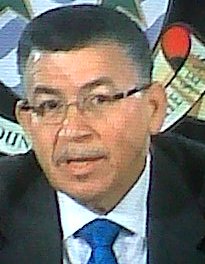
Mac hits back at critics over district councils
 (CNS): The country’s premier spoke to the nation again on Thursday evening to “dispel some of the fears, and correct some of the misinformation” that he said had surrounded the introduction of the district councils. He said the main point of contention was the manner in which they will be selected. Government did not think they should be elected, McKeeva Bush said in the address, but that members would be appointed by the Governor in Cabinet to include people nominated by the opposition, the ruling party, independent MLAs and the public. Bush hit out at the opposition, saying if they felt so strongly about electing council members they should have written it into the constitution and accused them of tearing down what the government was trying to build.
(CNS): The country’s premier spoke to the nation again on Thursday evening to “dispel some of the fears, and correct some of the misinformation” that he said had surrounded the introduction of the district councils. He said the main point of contention was the manner in which they will be selected. Government did not think they should be elected, McKeeva Bush said in the address, but that members would be appointed by the Governor in Cabinet to include people nominated by the opposition, the ruling party, independent MLAs and the public. Bush hit out at the opposition, saying if they felt so strongly about electing council members they should have written it into the constitution and accused them of tearing down what the government was trying to build.
The premier’s address was in response to the criticisms which were raised by the opposition and the independent MLA in the Legislative Assembly during the debate on the bill on Monday. The Advisory District Councils are provided for in the 2009 Cayman Islands Constitution.
“The constitution makes no requirement that the council members be elected and in my view for a good reason,” the premier said, adding that the councils are advisory bodies and will have no binding authority. “They are there to advise their district’s elected members of the Legislative Assembly on district matters.”
He denied that the councils would merely be a rubber stamp for government policy as there was nothing for them to rubber stamp since they are not there to approve or carry out policy but to advise their MLAs, and through their representatives advise the Cabinet.
Describing the councils as a linkbetween the elected legislators and the people of the district, he said they would not be sham entities and would not be appointed "to tell the government what it wants to hear" as has been charged. “Quite the contrary,” Bush claimed, as he said the law clearly sets out and guides the functions of these new bodies.
“These are meant to be real working bodies that will provide a valuable addition to our ability to assess the needs of people and communities, and respond with sensitivity and precision,” he told the people in an address broadcast on both CITN and Radio Cayman.
“We are therefore poised with the creation of the Advisory District Councils to begin a new era in our system of public governance,” he said.
According to the law, as many as ten members may be appointed to a council and the Cabinet will select and appoint four officers. Up to six other members may be appointed. Of these regular members, at least two must be recommended by the leader of the opposition.
“This means that it is possible for the opposition to have more than two members on a council,” Bush stated. “The opposition well knows, and the press ought to know, that the health of a liberal democracy may be measured in direct proportion to the exercise by persons of their rights as citizens. The Advisory District Councils, as an instrument of public governance, will be as well-balanced as people make them. We remain answerable to the electorate. If they don’t like the way we appoint the councils, what we throw on them will boomerang on us,” he added.
He said government intended representation on the councils to be fair, open and balanced. He said where there is no ruling party members in a district, such as East End and North Side, where he said “the MLA is supposedly declared independent”, the law stipulates that the ruling party would in such cases be limited to no more than three nominations to the council. “Clearly the point is to give the member a recognisably strong hand,” Bush stated, adding that would not be the approach of a government whose intent was to control the councils in the "dictatorial" manner that has been charged, in the inflammatory language of the bill’s opposers.
“Critics of the bill say that, by appointing the council members, the government will load the councils with cronies who will tell the government what it wants to hear. Now that would be foolish. How could a government expect to be re-elected if it doesn’t listen to what the people are telling the district council?” he asked rhetorically.
He said that while people were saying the UDP government was creating an advantage for itself by having the members appointed, he had been in the political arena long enough to know that in the Cayman Islands no one party, team or person stays in power forever.
“At some point in the future, the UDP will sit as the loyal opposition,” he said. “So why would we create a situation that gives an advantage to some future government that we might have to sit in opposition to in the Legislative Assembly? That would not only be a failure of good governance, it would indicate a collapse of common sense.”
Bush also criticised the amendment offered by the North Side representative, Ezzard Miller, as he said it sought to exclude all but registered voters from either voting or holding office on the councils.
“The effect of this would be to exclude from the councils many persons with a wealth of skills and experience potentially of value to their communities. In contrast to this, the councils, as proposed in the bill, would be as inclusive as possible, also giving civil servants an opportunity to contribute to public efforts in a more open forum.”
The Advisory District Councils, he said, would offer a different quality of involvement from anything seen before and said how they operated would be the important thing.
“Don’t believe the crude political rhetoric that makes the councils out to be puppets of the government. The Advisory District Councils will be as good as you want them to be, as good as you make them – as good as your questions, your opinions, your suggestions,” the premier declared.
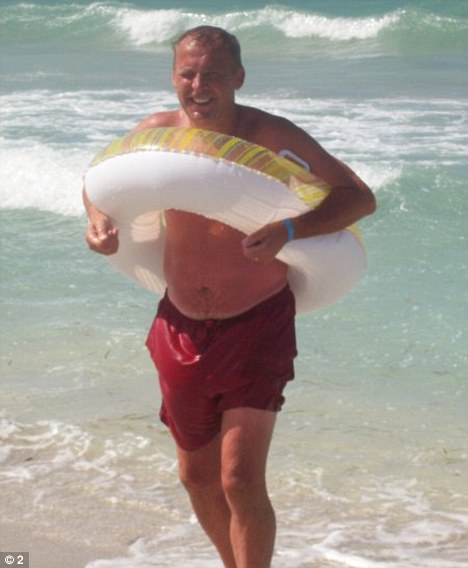
Bridger pursues complaint re-Operation Tempura
 (CNS): The trials and tribulations following the UK’s Special Investigation Team (a.k.a. SPIT) and Operation Tempura are back in the news. A feature piece in today’s edition of the UK’s Financial Times reveals that the story is not over. Martin Bridger (left), the Senior Investigating Officer and head of SPIT, who was driven out after the entire operation was discredited (but not after it had cost Cayman millions of dollars), is pursuing an official complaint against the FCO and the Governor’s Office. The UK paper reveals that the current governor has asked a London-based QC for advice on how to handle the complaints and Benjamin Aina reportedly gave Duncan Taylor a report on the matter just before Christmas. (Photo from the UK’s Daily Mail)
(CNS): The trials and tribulations following the UK’s Special Investigation Team (a.k.a. SPIT) and Operation Tempura are back in the news. A feature piece in today’s edition of the UK’s Financial Times reveals that the story is not over. Martin Bridger (left), the Senior Investigating Officer and head of SPIT, who was driven out after the entire operation was discredited (but not after it had cost Cayman millions of dollars), is pursuing an official complaint against the FCO and the Governor’s Office. The UK paper reveals that the current governor has asked a London-based QC for advice on how to handle the complaints and Benjamin Aina reportedly gave Duncan Taylor a report on the matter just before Christmas. (Photo from the UK’s Daily Mail)
Last year UK barrister Martin Polaine, who was the anti-corruption legal expert that advised Bridger during Operation Tempura, was disbarred from the profession as a result of his involvement in the case which had led to the unlawful arrest of Justice Alex Henderson. He told CNS in November that he had dropped the complaint he had made to the Foreign and Commonwealth and the Governor’s Office against “those who behaved in certain ways in relation to Operation Tempura” as he had lost faith and trust in the enquiries.
Polaine said he had no confidence in Aina but when pressed would not reveal the details of the complaint or why he was no longer pursuing it. “It would be inappropriate of me to go into detail at this stage. I can simply say that my complaint related to sections of the judiciary, to the Attorney General’s Chambers and the FCO. Given that Mr Aina’s enquiries may be continuing, notwithstanding my withdrawal, I am unable to say any more at the moment,” he told CNS.
“‘I stand by what I have told them, but can go on as a complainant no longer. My life has been ruined, even though I was acting in good faith at all times and was simply seeking to conduct myself professionally and properly. I now know that I have been beaten,” the former attorney added.
Bridger, however, appears not to have been beaten and is continuing to pursue the complaint which had originally been made by both men.
According to the FT, which says it has Aina’s report, Bridger and Polaine complain that the chief justice, who had made an earlier ruling in the case, spoke to Justice Henderson outside the courtroom about his relationship with John Evans, the former Net News journalist involved in the issues, which triggered the arrival of SPIT in Cayman. They also say the chief justice went to see Henderson at the police station after his detention and, without notifying the arresting officers, spoke to him in a private room.
In a February 2008 judgment, the chief justice said he did not think he should recuse himself from the case over perceived bias but had said the Tempura investigators were free to challenge his decision.
Polaine and Bridger question the role of Sir Peter Cressell, the former UK judge who presided over Henderson’s judicial review and was later appointed to the Cayman Financial Court. Polaine claims Sir Peter made findings of bad faith without supporting evidence and questions why the judge met with Anthony Smellie after arriving on the islands to hear the review. Cresswell maintains that he remained independent throughout and kept a distance from those involved.
The complaint also questions the role of Larry Covington (raised here in Cayman on a number of occasions without receiving answers) a Foreign Office law enforcement adviser whose part in the Operation Tempura fiasco has never been fully explained. Stuart Kernohan, the former police commissioner who was sacked during the investigation, had reportedly told Covington about the Cayman Net News office search. The FT further reveals that it too failed to get any further on the question of Covington as he referred the paper to the FCO press office, which did not comment.
The complaint dossier includes the issue of the allegations which were later supposedly examined under Operation Cealt by the temporary police commissioner, James Smith. Polaine states in the complaint, “Many of those who came forward said they had been waiting for years to have sufficient confidence in a team who seemed serious about tackling corruption.”
However, given the various revelations about its conduct, the question that emerged later about SPIT was whether the members were ever serious about tacking anything other than enjoying a jolly in the Caribbean at the local tax payers’ expense.
The alleged hours and hours of taped interview, which Bridger had said documented complaints about corruption and misconduct in the police and elsewhere, have never seen the light of day. The outcome of Operation Cealt, which was taken over by the current commissioner after Smith left, has never been revealed. John Evans has claimed that many of the complaints were questionable and had come from Desmond Seales, the Net News editor at the heart of the entire investigation, whom Evans suggests Bridger trusted throughout. Other sources close to the investigation have told CNS that the complaints made about corruption in the RCIPS had more to do with incompetence.
Bridger, it appears, has not given up on Operation Tempura and is implying that, rather than unravelling as a result of SPIT’s incompetence and a lack of evidence, the investigation was deliberately blocked. The impact of the fallout from SPIT was nowhere near as damaging for Bridger as it was for his colleague Polaine, who was struck off as a result of his involvement.
The former UK cop faired far better. He retired from the Metropolitan Police Service during his time here in the Cayman Islands and took up a consultancy post with the CIG as SIO of SPIT. According to an auditor general’s report, he earned more than $500,000 in salary, benefits and expenses, paid for by the Cayman tax-payer.
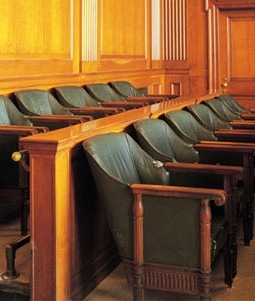
Jury pool needs to expand
 (CNS): Chief Justice Anthony Smellie has backed the call by the legal profession to expand the Cayman Islands’ jury pool beyond the electoral register. The country’s top judge warned that law reform was by no means the only way to address the issue of rising crime as he offered his support to the idea of extending the roll of jurors to include all adults lawfully resident in the jurisdiction. He said penal or punitive measures could only go so far to protect the public interest and that legislation is not meant to be a panacea to crime. The CJ also revealed that the judiciary’s advice against moves by government to remove the right to trial by jury had been accepted.
(CNS): Chief Justice Anthony Smellie has backed the call by the legal profession to expand the Cayman Islands’ jury pool beyond the electoral register. The country’s top judge warned that law reform was by no means the only way to address the issue of rising crime as he offered his support to the idea of extending the roll of jurors to include all adults lawfully resident in the jurisdiction. He said penal or punitive measures could only go so far to protect the public interest and that legislation is not meant to be a panacea to crime. The CJ also revealed that the judiciary’s advice against moves by government to remove the right to trial by jury had been accepted.
Talking about the need for the community to be more engaged in the fight against crime during his address at the opening of the Grand Court, Smellie explained the advantages to be gained by widening the net when it came to jurors.
“If adopted, [it] would not only greatly increase the number of potential jurors it would also spread all the burdens and responsibilities of jury duty across that wider base,” the judge told the audience gathered at the court house for the official ceremony. “And it follows, there would be even less to be gained for those with criminal intentions in seeking to intimidate jurors, if they were assured that the society at large refuses to be intimidated.”
The difficulty of panelling juries is an ongoing problem in Cayman as a result of the relatively small jury pool and the family connections between people. In February last year the process of jury selection in one firearms related trial with four defendants resulted in the entire jury pool for that session being dismissed for one reason or another when only four people had been sworn to serve. The court staff were then forced to literally trawl the streets of George Town to find the remaining three jurors, and when one fell ill the trial went ahead with only six people sitting on the jury.
During jury selection it is common for those who are called to serve to reveal direct connections with the defendants, the victims, the witnesses or the police involved with the case. Coupled with the right of both the crown and the defence attorneys to refuse up to five juror’s each, it can take a long time to find seven people, and in the case of murder trials twelve people, who can honestly say they are completely impartial.
With the rise in crime in the local community, the chief justice said that legislative reform was not an uncommon response but he emphasized it was not the only response and called on the community to help. “No matter how draconian the measure, it can provide no substitute for the will of society itself at large to confront the problem of crime and for the responsibility of each and every law abiding citizen to do his or her part to assist the law enforcement authorities in the response to crime. Strength in numbers is the ultimate recourse of lawful society,” the top judge said.
Noting the dangers and limitations of law reform he pointed to a recent ruling in the Court of Appeal with regard to the crown’s use of the new witness anonymity law. The Court of Appeal had explained in the ruling “why such anonymity orders should only be made in exceptional circumstances and why a witness protection programme in Cayman is likely to have only limited practicability.”
He said taken as a whole, the raft of legislative changes told the story of a society that “perceives itself as faced with a crisis” and was using legislative means to respond.
“While such a response is understandable and even to be expected, the judicial perspective must nonetheless be objective as the legislative measures arise for interpretation, implementation and enforcement. And it is then that the realities that separate the expected benefits, from the practical limitations of this kind of legislation, are likely to be tested, explained and declared,” the judge warned.
Any perceived attempt to retreat behind a legislative cloak of protection could send the wrong message, Smellie added.
He also spoke of the need to tackle the rise in violent crime in alternative ways. Following the presentation from Attorney General Sam Bulgin, the chief justice said the early and continued intervention with young people at risk could do a lot more to address the issue than legislation alone.

Laws pave way for water sale
 (CNS): With government having put out the country’s sewage project for tender last year, the deputy premier brought three bills to the Legislative Assembly this week that pave the way not just for privatisation of the Water Authority’s wastewater management system but the entire authority. The combination of new laws and amendments which deal with the production of water and concessions to provide it, wastewater collection and the management of the system were, Juliana O’Connor-Connolly said, “crafted with care” and allowed government to move to the “implementation mode of its wider policy for divestment of these assets.” Later in the debate, the premier revealed that his intention was to lease the water authority but offered no details of the plan.
(CNS): With government having put out the country’s sewage project for tender last year, the deputy premier brought three bills to the Legislative Assembly this week that pave the way not just for privatisation of the Water Authority’s wastewater management system but the entire authority. The combination of new laws and amendments which deal with the production of water and concessions to provide it, wastewater collection and the management of the system were, Juliana O’Connor-Connolly said, “crafted with care” and allowed government to move to the “implementation mode of its wider policy for divestment of these assets.” Later in the debate, the premier revealed that his intention was to lease the water authority but offered no details of the plan.
The new laws brought by the minister with responsibility for the authority, Juliana O’Connor-Connolly, will ultimately mean an increase in costs for most people in the Cayman Islands. Everyone will be charged not just for the water they use in future but for the treatment of sewage as well. Under the new Wastewater Collection and Treatment Bill (2010), all buildings must be connected to the wastewater system, under whichever private organisation is eventually selected.
The three bills have been crafted to facilitate the sale of the government’s water company but during the debate on the legislation, which spanned across two days in the country’s parliament, the government did not reveal any of the details of how it intended to privatise or lease the Water Authority itself and to whom.
As he contributed to the debate on the third law, the Water Authority Amendment bill, the premier lashed out at the opposition for asking government to spell out those plans and said he needed money to run the country because of the previous administration’s mismanagement. He described the opposition as “evil” and said they were deliberately misinforming the country that there was something “nefarious” going on when he was trying to do something to improve the financial position of government.
Bush indirectly implied that civil servants had been leaking information to the opposition when he said they “knew too much” and accused people at “authorities”, whom he later said he had assisted to get their doctorates, as impeding government’s intention to realize the assets it had at a time when the country needed money.
Giving little away with regard to the plans for the actual authority itself, the premier was furious as he struck out at the opposition over their questions to government about the bills when he said people had been waste deep in sewage in Hurricane Ivan. He warned that if a visiting tourist were to catch any kind of gastric condition from swimming in Cayman waters, the country would seriously suffer.
During his attack on the opposition, which began on Monday evening and recommenced on Wednesday afternoon, the premier went no further in revealing what he intended to do with the authority other than saying it would be leased, not sold.
Alden McLaughlin had raised the point that the legislation seemed to be what he said was “purchaser-specific”, as though it had all been drawn from an existing checklist, and wondered if government already had someone in mind. “This is not being developed in a vacuum, with government looking to find the best possible arrangement,” he said, adding that he believed the laws were prepared in such a way to allow the purchaser to sign on the dotted line.
The opposition and Ezzard Miller, the independent member for North Side, who said he was against the privatisation, also raised the question of why the usual requirement under the law for Caymanians to have a 60/40 split with foreign entities for local companies was being waived, suggesting that Caymanians would be denied the opportunity to be involved.
Arden Mclean, the member for East End who was the former minister with responsibility for the authority, pointed out that the Water Authority was a profitable entity and he did not support its privatisation. He said that in 2008 it was valued at over $61 million.
“All I want to know is, if the people’s money is going to be used to make someone else money or are we getting that $61 million back right now?” he asked. McLean pointed out that over the years the government had reinvested the profits of the authority back in, so it was the people’s money which was used to allow the authority to be self-sufficient and keep the people’s water safe. “All of a sudden the Johnny-come-latelies are going to ride on their white horse and they are going to use the country’s money to make their own profit.”
The three bills were passed through a second reading and following a committee stage for any amendments to the legislation, which is expected to be passed in full by Friday.
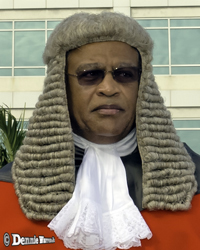
Restore legal aid to court, says CJ
 (CNS): The country’s top judge has called on government to return the legal aid budget to the judiciary and remove the continuing uncertainty surrounding the funding of legal representation. Speaking at the official opening of the 2011 Grand Court session, the Cayman Islands’ chief justice, Anthony Smellie, said that although both the law and the country’s Constitution place the responsibility for legal aid and the duty to ensure fair trials on the courts, no budget had been allocated to them to fulfil their essential functions as the money was given to the Ministry of Finance instead. Smellie urged the government to restore the legal aid budget to the courts. (Photo by Dennie Warren Jr)
(CNS): The country’s top judge has called on government to return the legal aid budget to the judiciary and remove the continuing uncertainty surrounding the funding of legal representation. Speaking at the official opening of the 2011 Grand Court session, the Cayman Islands’ chief justice, Anthony Smellie, said that although both the law and the country’s Constitution place the responsibility for legal aid and the duty to ensure fair trials on the courts, no budget had been allocated to them to fulfil their essential functions as the money was given to the Ministry of Finance instead. Smellie urged the government to restore the legal aid budget to the courts. (Photo by Dennie Warren Jr)
“While, as a purely administrative exercise, the bills are being paid as submitted by the judicial administration, we could not agree, as proposed by the ministry, that the ministry should be able to override the judiciary’s decisions, made under the law, to grant legal aid,” the chief justice said.
He pointed out that the subject of legal aid had been thoroughly examined and the existing system found to work well. He called for the executive arm of government “to allow matters to return to normalcy”, suggesting that any necessary improvements to the existing system could readily be addressed.
The premier first announced his decision to take the legal aid budget into his ministry at a late night sitting of Finance Committee during his government’s first budget meeting at the Legislative Assembly in 2009. The plan at the time had been to open an independent legal aid office with two local attorneys at the helm. However, while the proposed legal aid office has not yet materialized, the budget appropriation has remained in the Ministry of Finance.
The chief justice said that returning the legal aid budget would restore a sense of permanence to the administration of justice for the Islands. “This is vital to the ongoing ability of the courts to ensure that there are fair trials in criminal cases in particular, as it is also in respect of many cases involving the welfare of children and families,” he said.
He pointed out that the uncertainty surrounding the issue was also causing problems with legal representation. “At the best of times the number of lawyers who have been willing and able to take on criminal cases has been very small relative to the overall size of our bar,” he said, adding that the number had dwindled recently in response to reasonable concerns over the legal aid system.
“As all but a few of the criminal defendants facing serious charges qualify under the law and so must be given legal aid, the defence lawyers are called upon to dedicate themselves to a practice that depends almost entirely on legal aid funding. It is simply unreasonable, therefore, to expect them to do so in a prolonged climate of uncertainty,” he added as he thanked those defence lawyers who had been willing to carry on regardless.
James Bergstrom, the president of the Cayman Islands Bar Association, also raised the issue of legal aid in his presentation. He pointed out that the association had supported the Law Reform Commission’s findings in the report which was tabled in the Legislative Assembly in 2008. This report found that the legal aid system administered by the courts offered value for money and endorsed the system, with some recommended improvements that the chief justice said had been identified and agreed. In the wake of the premier’s announcement that he wished to change the way legal aid was managed, a committee was established by Cabinet to examine the subject. That committee completed a report in March of 2010. However, the report has not yet been made public.
Bergstrom called on government to reveal the report as he emphasised the importance of a legal aid system and asked government to return the responsibility to the courts, which are responsible for the administration of justice. “The current situation is unsatisfactory and we want to see it brought back to the courts,” he said.
CNS made an FOI request for the report last year, which was denied because the ministry said the report had not yet gone before Cabinet. Since then, we have askedfor an internal review, the outcome of which has not been revealed despite several months having passed. The issue is currently being investigated by staff from the Information Commissioner’s Office.